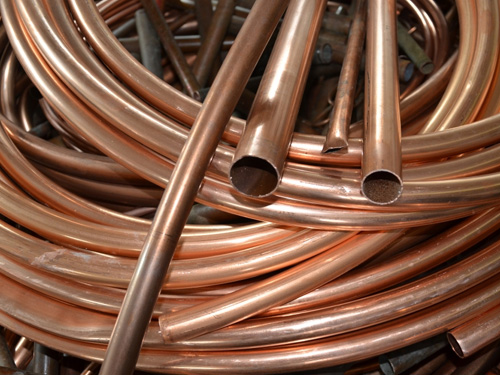PERIMETER BLOG
LATEST NEWS & INTERESTING FACTSDid you know that if your house is not properly grounded, it can actually affect the elctronics in your house? If you are constantly blowing light bulbs or your microwave stops working for no reason, chances are your house is not grounded properly.
Most the time, the biggest cause of this is when you replace your water service and you change your piping from copper to plastic. Most older homes use their water service as their method of grounding their electrical panel. There are grounding plates and rods that perform the same function.
If you change your water service to plastic and you have an existing ground on your water service, just installing your own rod or plate is a job you definitely do not want to tackle. If it’s installed without an inspection and you have a fire, chances are you would have no insurance.
Why do people choose plastic over copper? Mostly because of cost.
This is just one of the situations we’ve come across in the years we’ve been helping people with their waterlines in the Lower Mainland. We love the DIY work ethic, but there are unpublished rules that can cause enormous headaches if something goes wrong later.
One important decision people need to make is between copper and plastic pipes. Sometimes they make this decision before something goes wrong, and sometimes it’s after. Look, water services either fail or they don’t – you can be proactive or you can wait for disaster to strike.
We prefer option 1.
Copper vs Plastic
Longevity
Copper pipes can corrode over time as they’re exposed to hard water along with large amounts of flowing water. Plastic doesn’t corrode, but the joints used to connect can develop leaks. Fortunately it’s easier to spot leaks than it is disappearing copper, but it will still require more work throughout the lifetime of the pipe. However, higher in the mountains of North Vancouver where the ground freezes in the winter, with so much ground movement, plastic can break down much more quickly than copper.
The Edge: Copper
Installation
PEX is cheap. Copper is not. But copper piping is tough and durable, and it’s easy to install provided you know what you are doing. Plastic piping, particularly flexible tubing such as PEX is also easy to install because there are fewer connections and joints. It’s a lot faster to install. However, water flowing through PEX has its downsides. There are studies done with the effects of chlorine mixed with plastic that indicate its undrinkable. I am one of those people who are very skeptical. After chlorination, treated water usually contains disinfected byproducts that result from water passing through chlorine, and we don’t yet know what the effects of the mixture of these byproducts and water are.
Copper on the other hand requires additional tools, such as a torch, a pipe cutter and a soldering gun. Copper adheres to most code regulations though, so there is less guesswork as opposed too plastic or PEX, which is continuously developing. For example, Poly-B piping used in the 80’s was once though to be a good idea, but is now breaking down and requiring extensive overhauls in 30 year-old homes.
The Edge: Plastic
Sustainability
Whether you’re using plastic or copper piping, the smallest elements of your home can have a large impact on the environment. So while PEX piping resists corrosion, the fact remains that water carried away from your house can contain harmful particles. That’s not to say it absolutely will contain harmful particles, but it’s a possibility. That being said, copper can be recycled, whereas most plastic piping can’t. Copper also provides a biostatic environment that discourages the growth of bacteria.
The Edge: You Decide
The Choice?
PEX is great as long as you don’t drink the water. We’d choose PEX over copper because it’s easier to install and use. For a water service you have to use what’s the best available and not simply make a decision based exclusively on cost. Exterior copper is fine as long as you’re properly grounded and have an inspection. When power comes in, in order to complete the circuit you have to be grounded. Power comes in and copper wire leaves the panel and attaches to the copper pipe to complete the grounding, or it goes though a grounding rod outside and attach to that.
As long as you’re up to code and insured, the type of material you use is your choice, just make sure you do your research first.

